The brightest moments of the struggle of African Americans for their rights
At the Lincoln memorial in Washington sounded "I Have a dream" — famous speech of a black preacher Martin Luther king, which has become a recognized masterpiece of oratory. That great for the U.S. black population day August 28, 1963, king led a March of 250 thousand people to the memorial, erected in honor of the President, once abolished slavery, and uttered the words that marked a decisive stage in the struggle of the African-American part of the country for their rights.
Look at the pictures of the events, proved that only a few people can sometimes change the life of the whole country and millions of his countrymen.
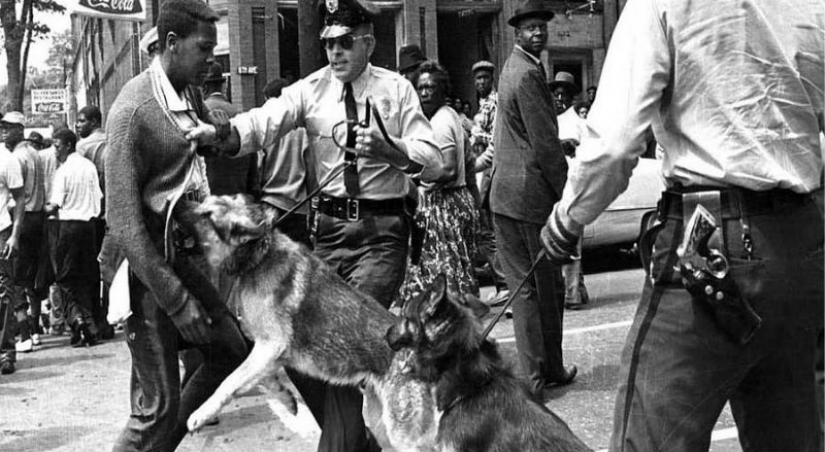

In 1958 the United States began the Civil rights movement of the black population, which put an end to official racial discrimination against the citizens, ending in 1968. To these momentous events, in many cities and States had the principle of segregation — separation of groups along racial lines. Blacks in various media were not allowed to participate in the elections. Acted laws that blacks could not learn in schools and universities, along with white, had to take designated seats in public transport etc.
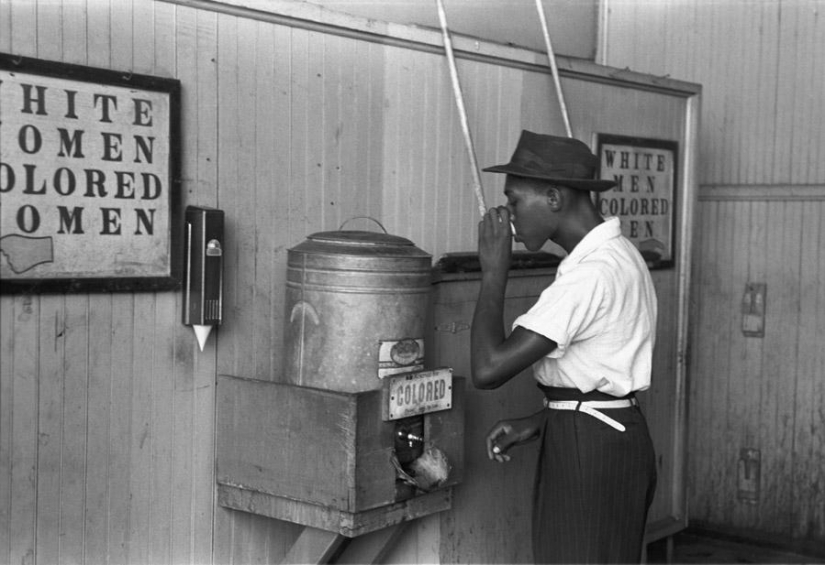
Blacks were forbidden to use in common with white buildings, is, in General, a cafe, shared a taxi and to drink from a common fountain. In addition, representatives of the government, judiciary and police had white skin and, accordingly, fully supported these legal inequalities. Blacks always call whites "Mr." or "Mrs.", although white rarely bestowed black such politeness. White was counting on their obedience, and resistance of blacks then was unthinkable. Many white southerners were convinced that African Americans accepted the role of second-class citizens, and they even like it. But the southern politicians opposed this decision. Created "Councils of citizens" — the group that are subject to economic sanctions of any black or white, dared to advocate for the integration.
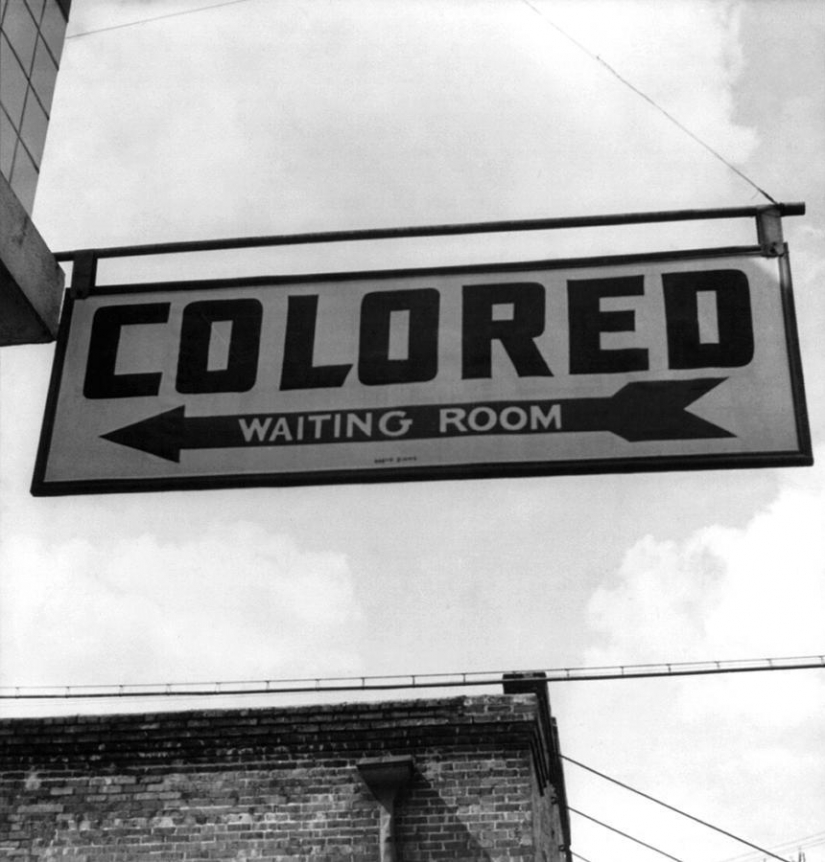
December 1, 1955 Rosa parks, a 42-year-old black seamstress one of the Department stores of Montgomery, capital of Alabama, was arrested and then fined for refusing to give up her seat on a bus to a white passenger as was required by local law.
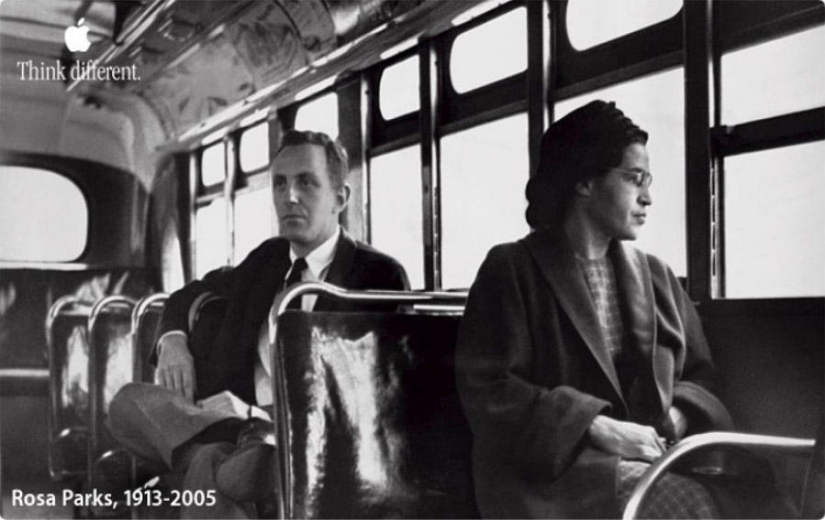
After the arrest of Rosa parks, ed Nixon, head of the local Union of the conductors, sleeping-cars, encouraged the Negro community to boycott public transport in protest.
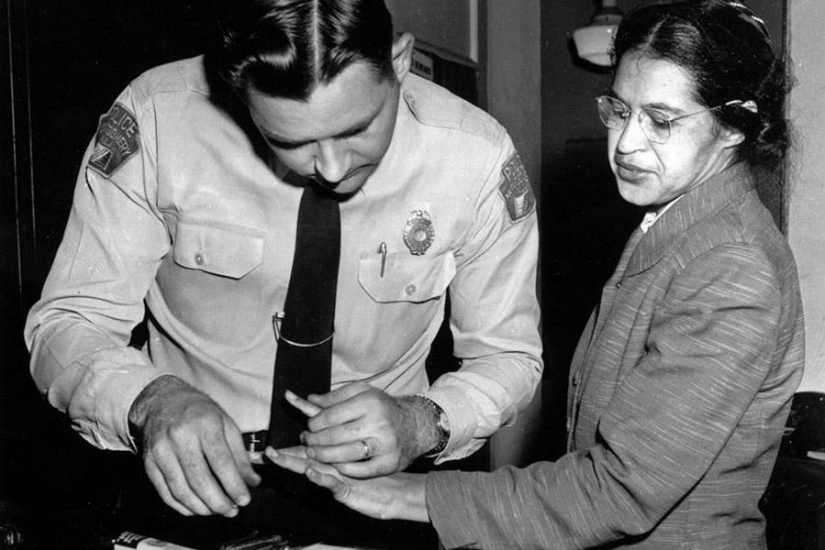
On the photo: Rosa parks. The bus boycott in Montgomery was soon led by a young black priest Martin Luther king.
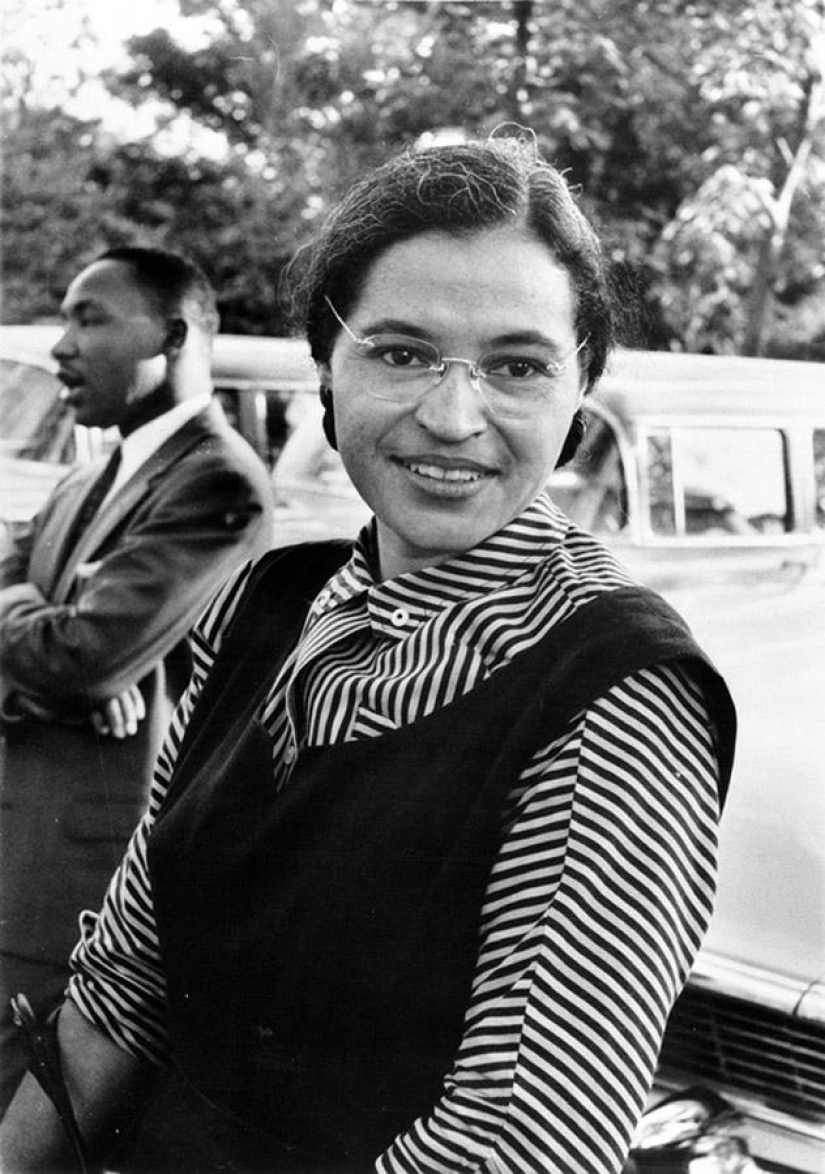
Thanks to the efforts of the king and members of the boycott Committee, a protest of black people lasted 381 days and went down in history under the name of "Walking in the name of freedom".
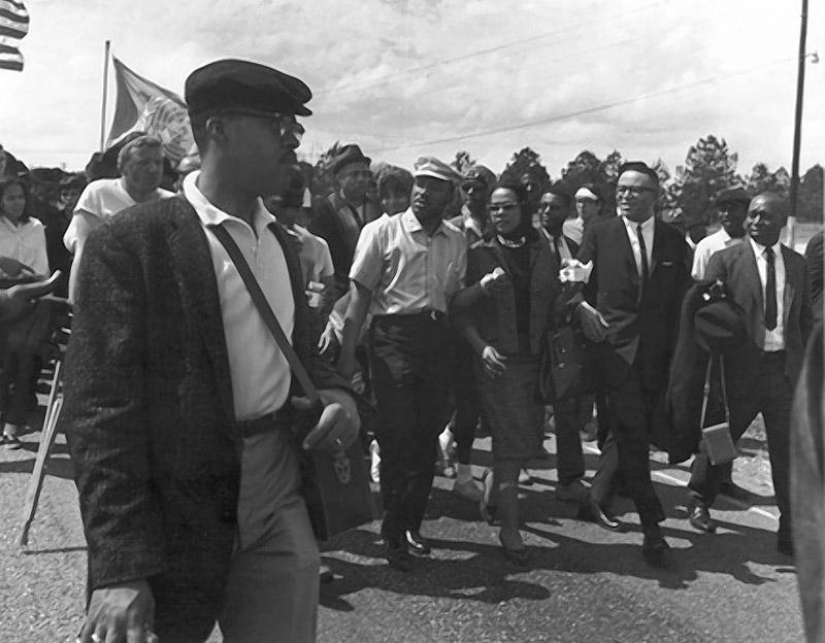
The protesters had to walk to work (part of the black citizens of Montgomery were transported to work and home from work black taxi owners on bus fares), and local bus companies have suffered large losses.
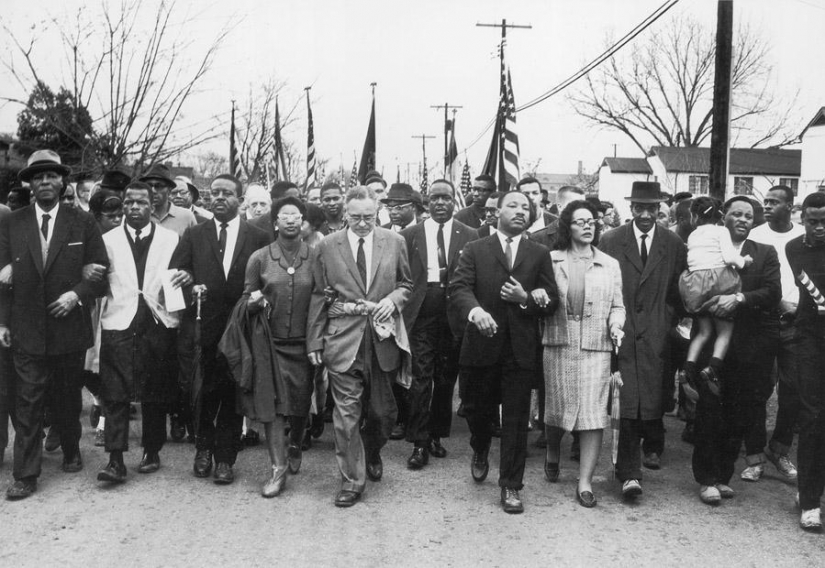
Despite the serious ideological split in society, America stood firmly on the path of democratic development, which meant legal equality and freedom for all citizens. In 1954, the U.S. Supreme court ruled that segregation of schools condemns black children to a "stigma of inferiority" and that the authorities of the southern States should as soon as possible to create uniform schools for whites and blacks. However, the part of the white population, these changes provoked a reaction.
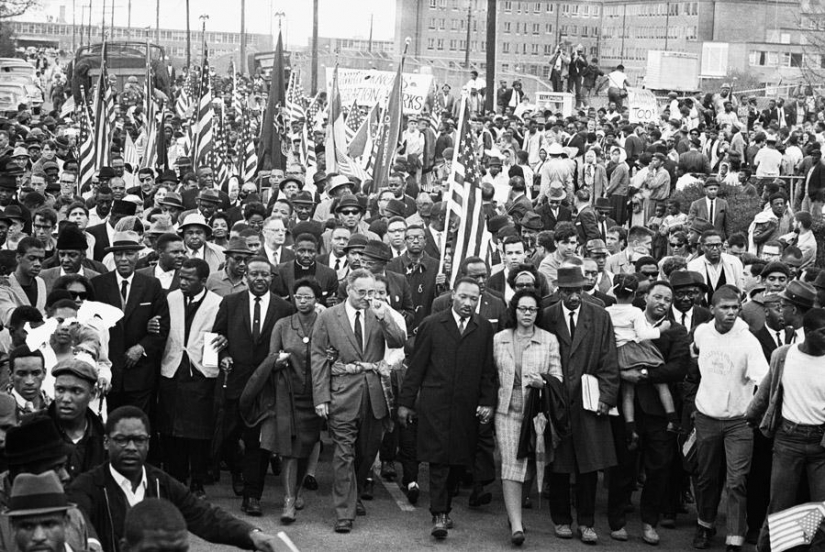
September 25, 1957. Association School Little Rock Central. Photo: 15-year-old Elizabeth Eckford. According to the memoirs of Elizabeth Eckford: "there was utter chaos, I looked around and tried unsuccessfully to find among the people around me at least one good face... seeing an elderly woman, wanted to ask for her support, but she in me. spat".
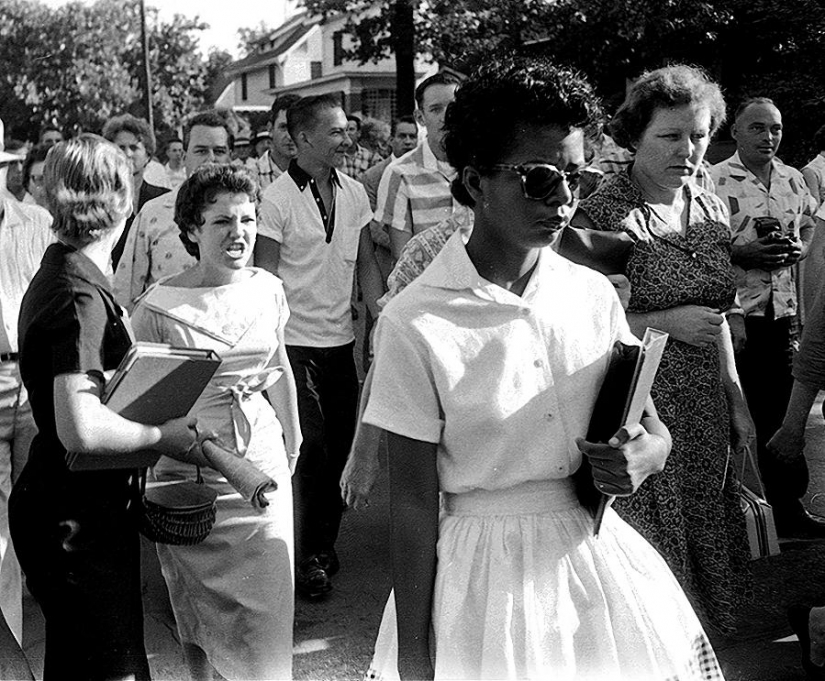
On the same day, contrary to the decision of the Supreme Court, the Governor of Arkansas had ordered the police to block the school and not to let her 9 black students.
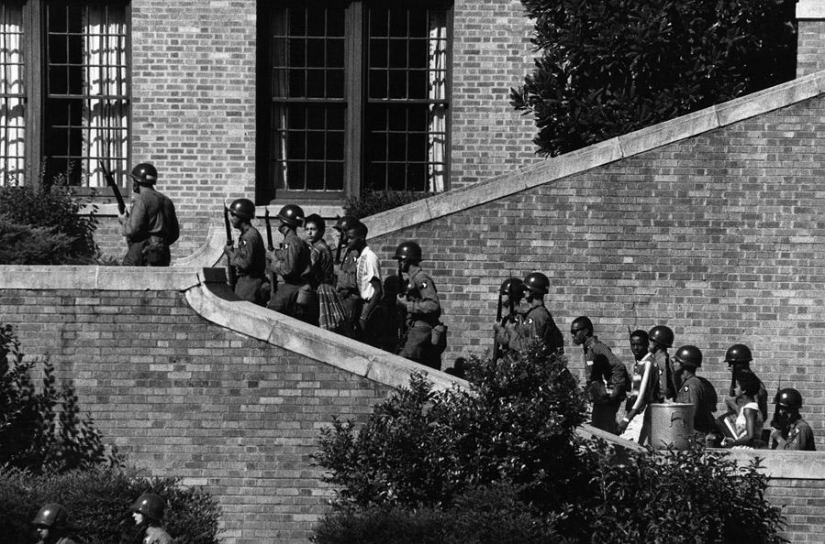
1957. Soldiers drives up the African-American student with a Bicycle to school. A crowd of disapproving looks, the photographer is shooting from the sidewalk, not daring to come closer.
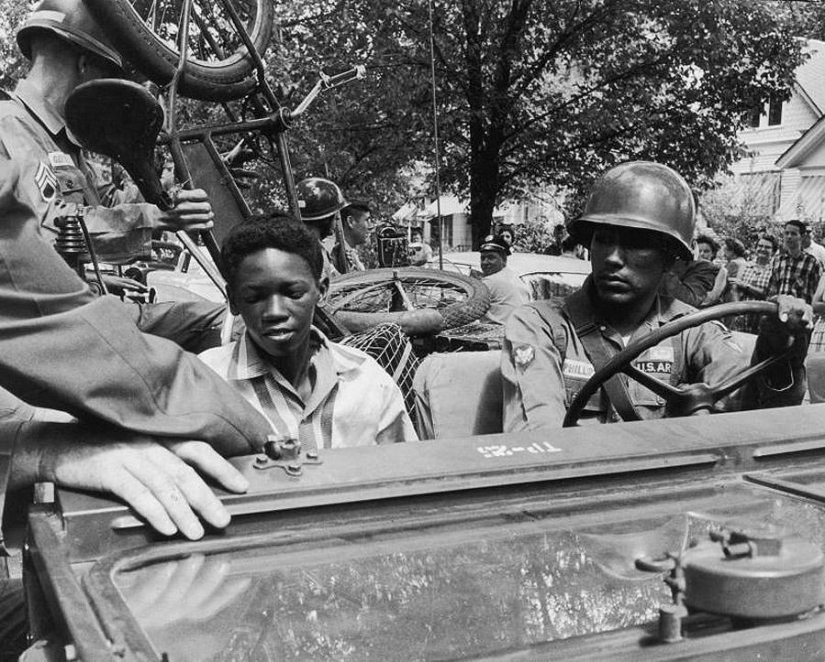
1958. Across the country there have been protests with the requirements of equality. In Virginia organize parties with the aim "to bring together" young people with different skin color.

A new phase of the struggle for civil rights began in 1960, when February 1, four black students sat on the seats for whites in the segregated diner in one of the stores of the Woolworth company in Greensboro, North Carolina.
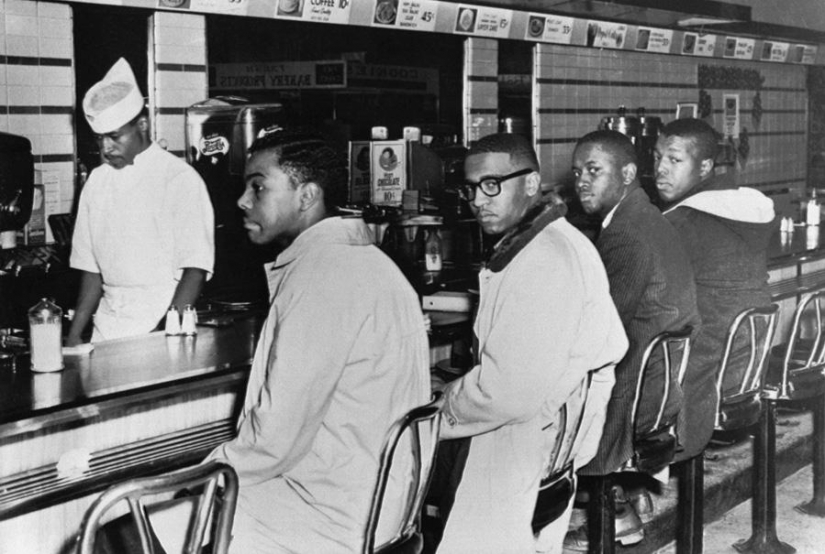
They were forced to leave, but the next day their example was followed by tens and hundreds of other black students. So began a wave of sit-ins demonstrations (sit-in), when the activists entered the institutions "for whites only" or sat on the seats for whites and demanded to serve themselves, refusing to leave. By the end of March 1960, they were held in more than 50 cities. They were supported by "lying", "kneeling" and "bathing" demonstrations in libraries, theatres, churches and swimming pools. The protesters, blacks were joined by white students. Initially, these actions were conducted spontaneously, but in April of 1960 was formed by the "Student non-violent coordinating Committee action" (The Student Nonviolent Coordinating Committee).
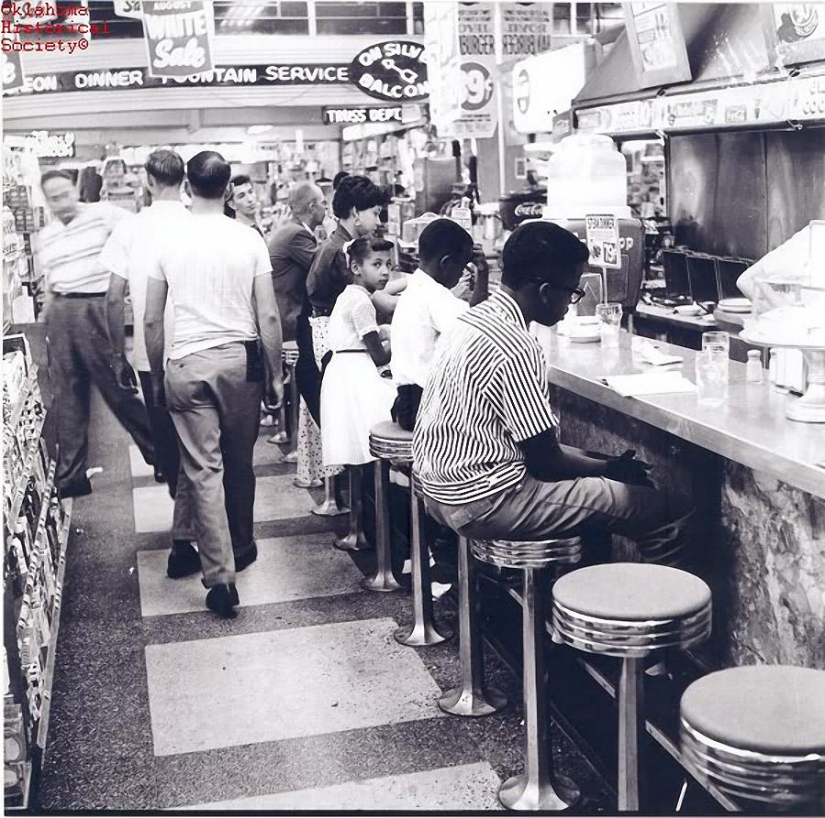
The photo correspondent Bob Edelman white crowd mocks civilized Americans participating in two of the movements for the rights of blacks.
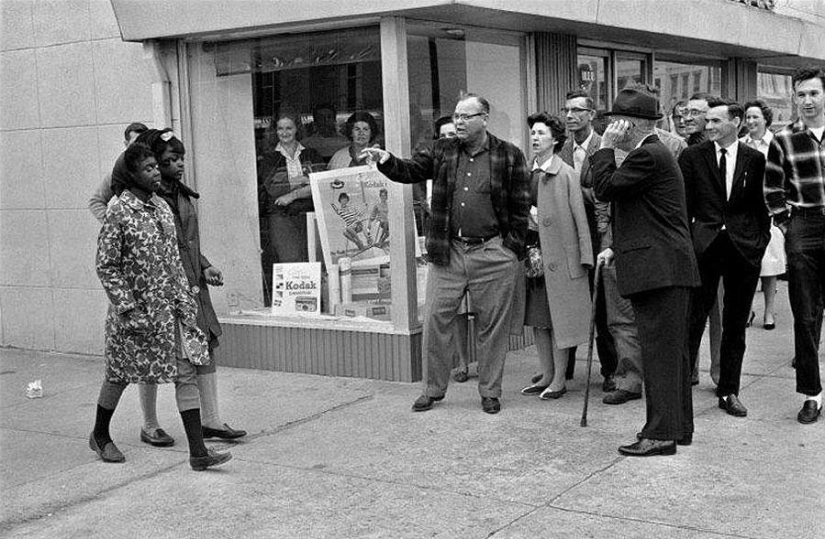
The struggle for democracy and civil rights and actively supported the progressive white population. Then is become clear that development is not possible without freedom, and freedom should be available to all citizens.
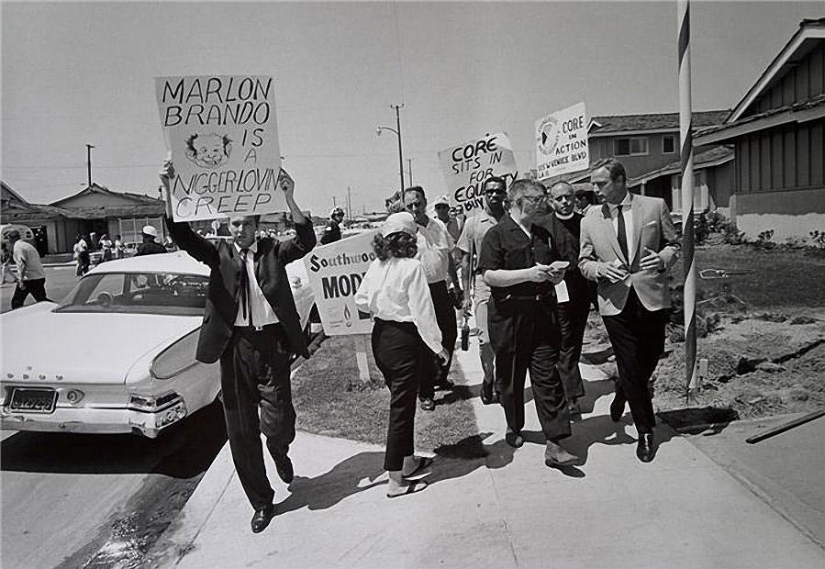
However, racists continued to put up fierce resistance. In 1963 the Governor of Alabama George Wallace declared: "Segregation today, segregation tomorrow, segregation forever." June 11, 1963, an incident occurred at the entrance to the University, when Wallace closed the road for the first two black students at the University of Alabama, Vivian Malone and James Hood. June 12, 1963 black activist Medgar Evers was killed outside his home in Jackson, Mississippi bullet white supremacist Byron de La Beckwith.
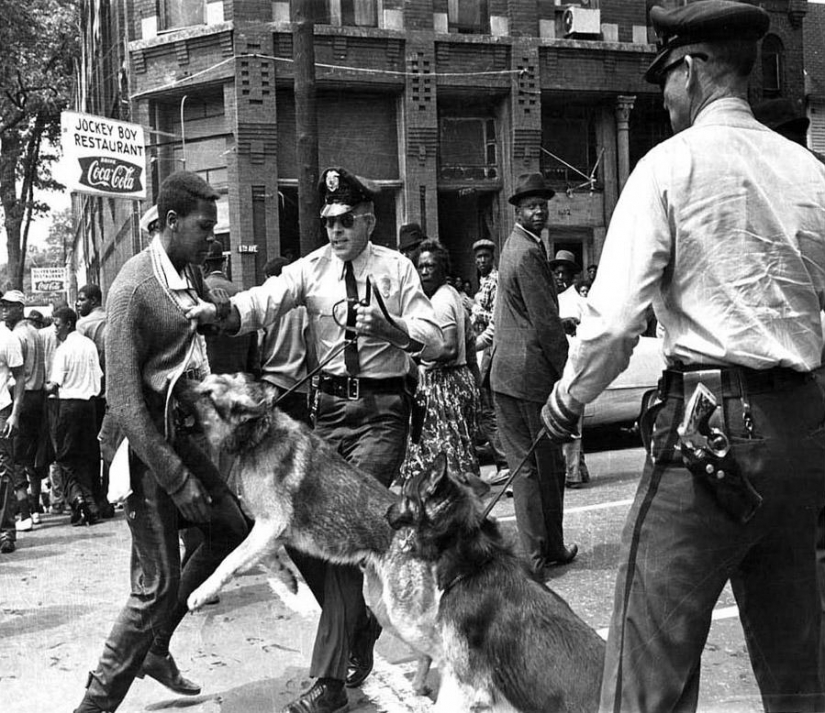
Police arrest protesters in may 1963, Birmingham, Alabama. Almost immediately, members of the "Ku Klux Klan" blew up black Baptist Church and killing four girls. Next year their supporters around the small town of Philadelphia, Mississippi, murdered three civil rights workers (two white and black). This crime has attracted the attention of the whole country (about the case in 1988 for the film "Mississippi burning" and the organizer of the murders, Edgar ray Killen was convicted in 2005).
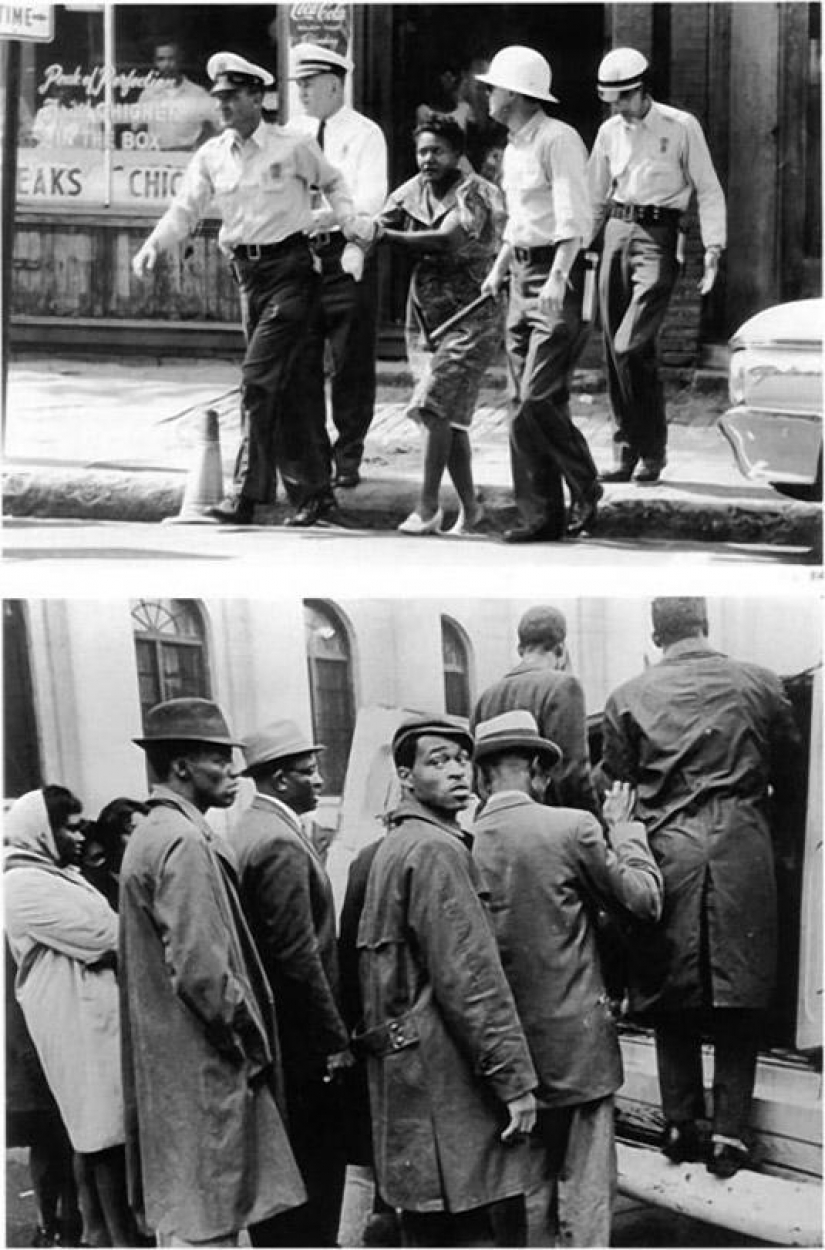
President Kennedy in June 1963 he sent to Congress a bill on a wide desegregation and action against discrimination against black citizens. To exert pressure on Congress in many U.S. cities were organized mass rallies and demonstrations demanding the adoption of this law. August 28, 1963, held a "March on Washington", which was attended by more than 250 thousand people. This day became a true holiday of unity of whites and blacks.
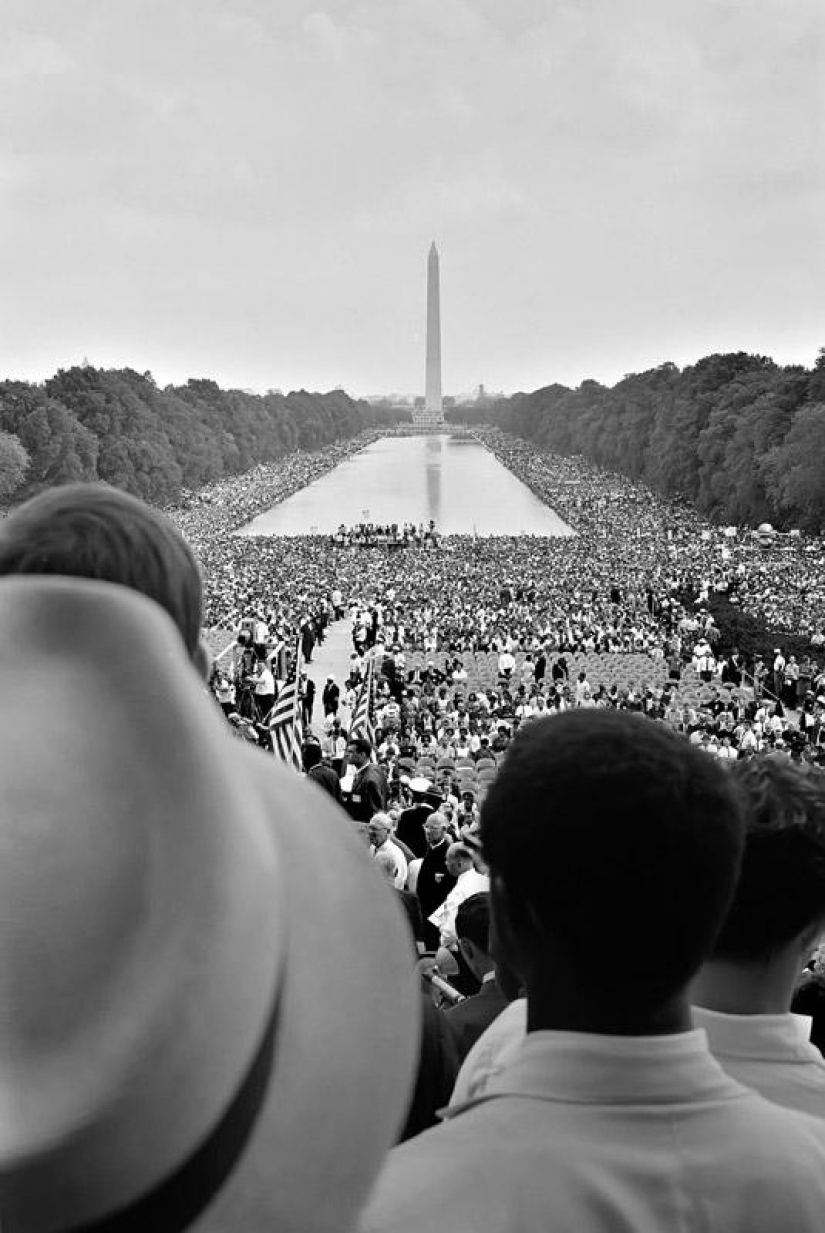
That day Martin Luther king talked about freedom, equality and patriotism: "We can't turn back. There are those who ask those who betrayed the cause of civil rights, "When will you calm down?" We will never rest, until our bodies, heavy with the fatigue of long journeys, will not be able to overnight in roadside motels and urban hotels. We will not rest until the main movement of the Negro remains moving from a small ghetto to a large. We will not rest until the Negro in Mississippi cannot vote and a Negro in new York believes he has nothing for which to vote. No, we have no grounds for reassurance, and we will never rest until justice will not begin to flow like waters, and righteousness will become like a powerful stream."
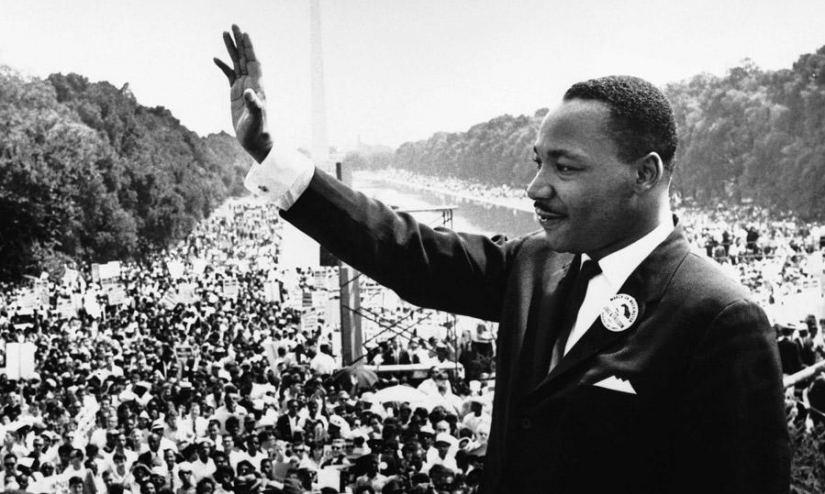
"I do not forget that many of you arrived here after passing through great trials and suffering. Some of you came straight from cramped prison cells. Some of you have come from areas where your quest for freedom you have been touched by the storms of persecution and the storms of police brutality. You have become the veterans of creative suffering. Keep up the good work, the belief that undeserved suffering is compensated".
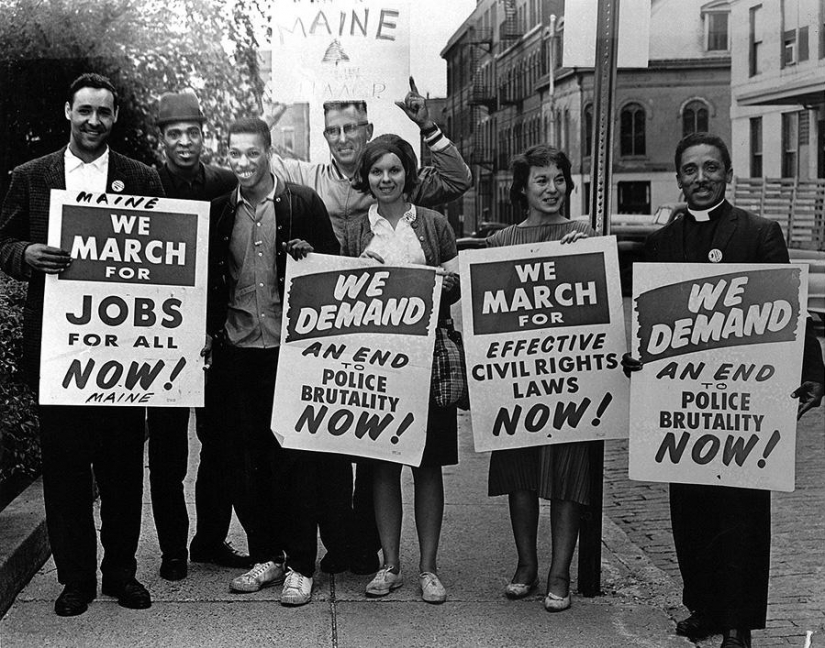
"But there's something else that I must say to my people, standing on the fertile verge at the entrance to the Palace of justice. In the process of conquering belonging to us by right places we should not give grounds for accusations of improper actions. Let us not seek to satisfy our thirst for freedom by drinking from the Cup of bitterness and hatred."
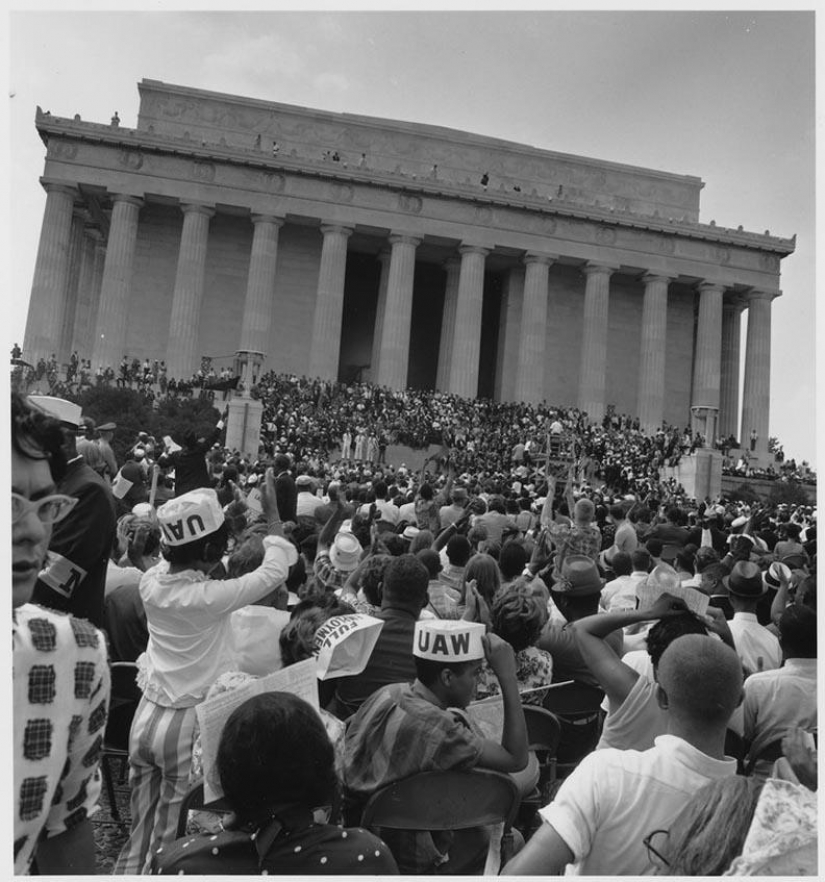
"I have a dream that my four children will one day live in a country where they will be judged not by the color of their skin but by their personal merit". On 2 July 1964, US President Johnson was passed by Congress signed the civil rights Act of 1964, which banned racial discrimination in the field of trade, services and employment. Martin Luther king, who in October 1964 was awarded the Nobel peace prize, launched a campaign in the city of Selma, Alabama for the inclusion of blacks in the voter lists.
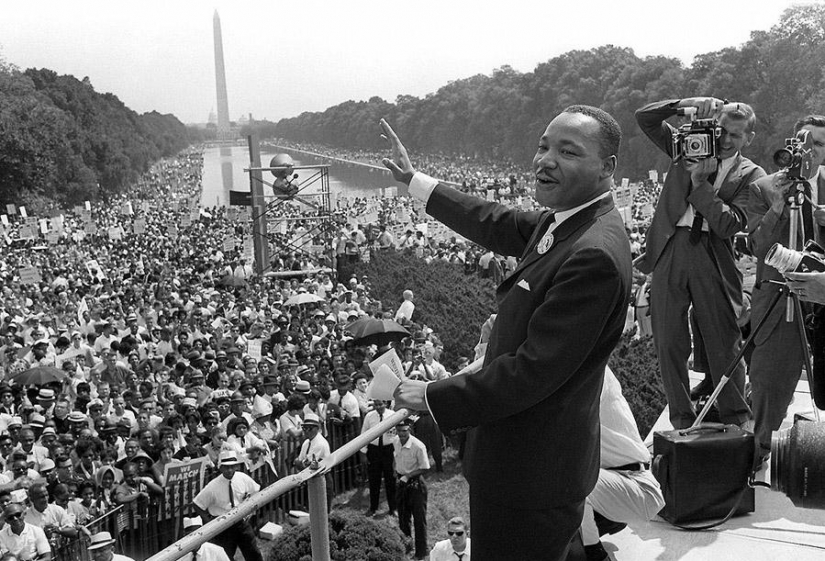
1964. "Vote!" campaign in support of a law allowing the participation in elections of African Americans.
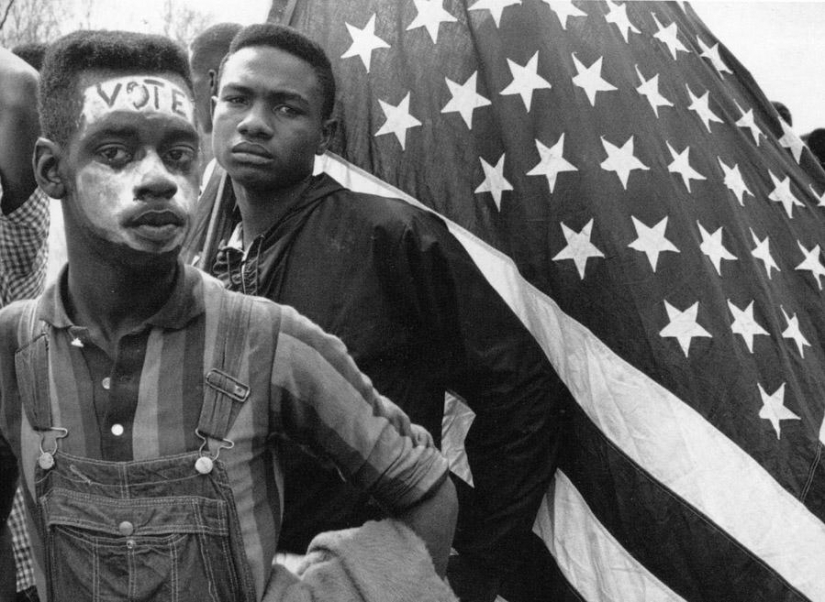
March for freedom in Montgomery, 1965 (Photo by Buyenlarge/Getty Images).
Keywords: The struggle | Right
Post News ArticleRecent articles

It's high time to admit that this whole hipster idea has gone too far. The concept has become so popular that even restaurants have ...

There is a perception that people only use 10% of their brain potential. But the heroes of our review, apparently, found a way to ...
Related articles

Everyone wants to believe their eyes, but what is hidden from your sight, could completely change the situation. Photoshop is ...

In the cold season is the time to take care of strengthening of immunity. Especially now, in the midst of a pandemic of mers. What ...

56-year-old Danny McCubbin told how I saw on the Internet offer that looked "too good to be true," he risked and eventually became ...

New Year's is a time to surprise and delight loved ones not only with gifts but also with a unique presentation of the holiday ...